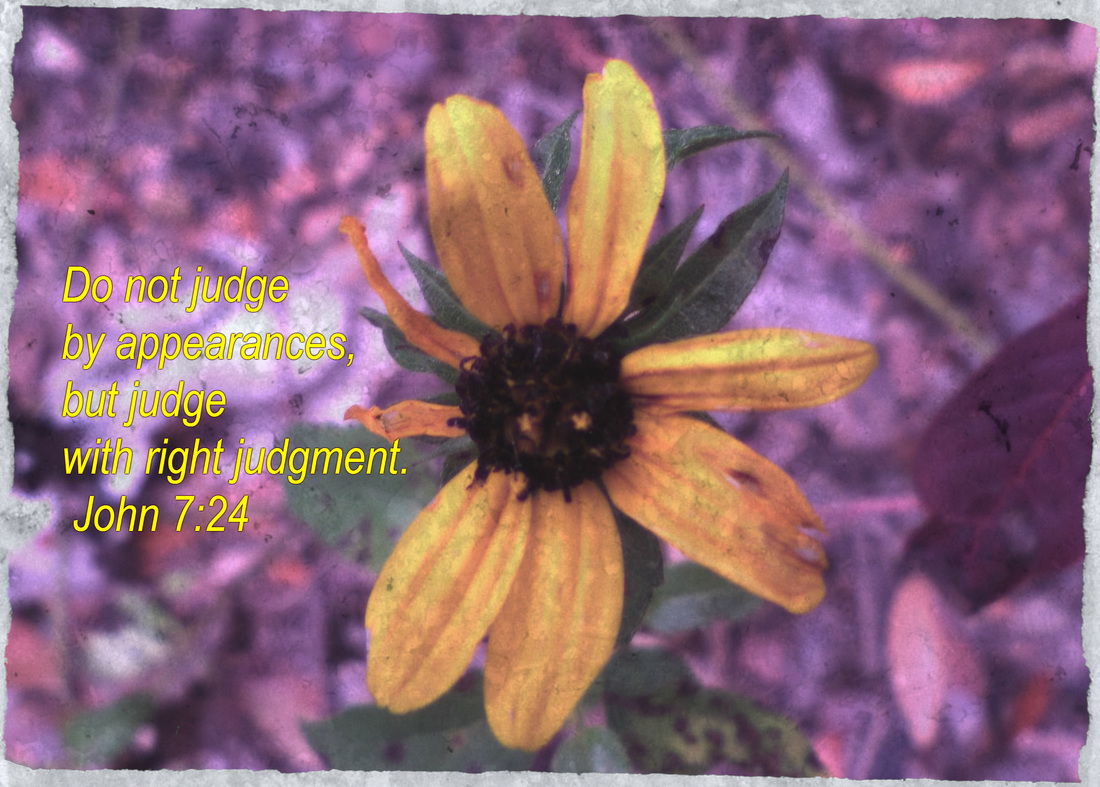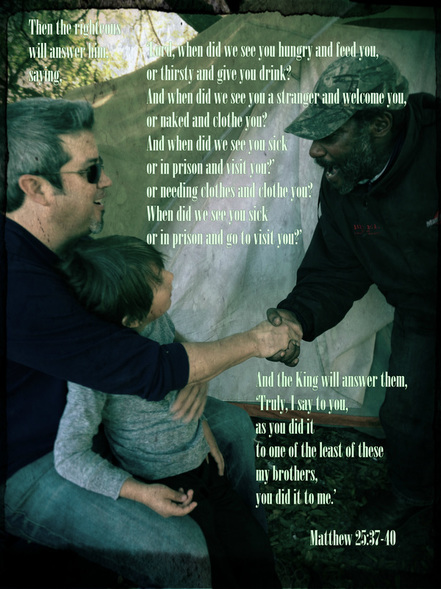Our Lord is the God of Justice. He cares very much about justice in all its forms and definitions. Deuteronomy 16:18-20 reads,
“You shall appoint judges and officers in all your towns that the Lord your God is giving you, according to your tribes, and they shall judge the people with righteous judgment. 19 You shall not pervert justice. You shall not show partiality, and you shall not accept a bribe, for a bribe blinds the eyes of the wise and subverts the cause of the righteous.20 Justice, and only justice, you shall follow, that you may live and inherit the land that the Lord your God is giving you.”
When Israel settled in the Promised Land, God wanted them to be different from other nations. He was their God, their Sovereign, and their Justice, so rather than appointing a king, He wanted them to have judges over portions of Israel and officers in each town. This was not a new thing for Israel, They had judges and officers when they were in the wilderness. At first Moses would sit as the intermediary between Israel and The Lord. He described what He did to Jethro, his father-in-law who had brought his wife and sons to visit him in Exodus 18:15-16,
“Because the people come to me to inquire of God; 16 when they have a dispute, they come to me and I decide between one person and another, and I make them know the statutes of God and his laws.”
Jethro told his son-in-law that he and Israel would wear themselves out that way. It was too much for one person to take on. So Jethro offered Moses some advice in Exodus 18:19-23.
“Now obey my voice; I will give you advice, and God be with you! You shall represent the people before God and bring their cases to God, 20 and you shall warn them about the statutes and the laws, and make them know the way in which they must walk and what they must do. 21 Moreover, look for able men from all the people, men who fear God, who are trustworthy and hate a bribe, and place such men over the people as chiefs of thousands, of hundreds, of fifties, and of tens. 22 And let them judge the people at all times. Every great matter they shall bring to you, but any small matter they shall decide themselves. So it will be easier for you, and they will bear the burden with you. 23 If you do this, God will direct you, you will be able to endure, and all this people also will go to their place in peace.”
This was God’s way of governing His people. The people did not bow down to an earthly king, they had a representative, an intermediary who brought the pleas of the people to Him and He directed them. The Judges system worked in the wilderness and it would work in the Promised Land. It is a picture of Jesus, our Righteous Judge as intermediary between us and The Father. It is a picture of us as intermediaries for one another in the body, elders praying for teachers, teachers praying for students, and students praying for one another. It is a picture of us standing in and praying for the lost. Romans 8:31-35 describes Jesus as our intermediary.
What then shall we say to these things? If God is for us, who can be against us? 32 He who did not spare his own Son but gave him up for us all, how will he not also with him graciously give us all things? 33 Who shall bring any charge against God's elect? It is God who justifies. 34 Who is to condemn? Christ Jesus is the one who died—more than that, who was raised—who is at the right hand of God, who indeed is interceding for us. 35 Who shall separate us from the love of Christ? Shall tribulation, or distress, or persecution, or famine, or nakedness, or danger, or sword?
The judges who represented the people had to be able to judge with righteous judgement. Righteous is צֶ֫דֶק transliterated tsedeq. Strong’s defines it as accurate, fair, just, righteously, vindication, and what is right. Judgement in verse 18 is the word מִשְׁפָּט or mishpat. It is defined as cause, charge, court, judgement, justice, ordinance, manner of life, and way prescribed. They had to know God and His will them to judge with righteous judgement. They had to know what righteousness was and what the way prescribed was.
John 7 describes Jesus at the Feast of Booths. The Sanhedrin were seeking to kill Jesus. They used the excuse that He had healed a man on the Sabbath. Although, many people knew it was dangerous for Him to go to Jerusalem for the Feast of Booths, He went anyway. When He was there, Jesus stood up and taught and the people were amazed by his teaching and they wondered how He could speak with such authority. John 7:16-24 reads,
“So Jesus answered them, “My teaching is not mine, but his who sent me. 17 If anyone's will is to do God's will, he will know whether the teaching is from God or whether I am speaking on my own authority. 18 The one who speaks on his own authority seeks his own glory; but the one who seeks the glory of him who sent him is true, and in him there is no falsehood. 19 Has not Moses given you the law? Yet none of you keeps the law. Why do you seek to kill me?” 20 The crowd answered, “You have a demon! Who is seeking to kill you?” 21 Jesus answered them, “I did one work, and you all marvel at it. 22 Moses gave you circumcision (not that it is from Moses, but from the fathers), and you circumcise a man on the Sabbath. 23 If on the Sabbath a man receives circumcision, so that the law of Moses may not be broken, are you angry with me because on the Sabbath I made a man's whole body well? 24 Do not judge by appearances, but judge with right judgment.”
Righteous judgement means we think, speak, and act on God’s Word and will, not our own. We judge from His viewpoint, not humanity’s viewpoint. Verse 19 reads,
You shall not pervert justice. You shall not show partiality, and you shall not accept a bribe, for a bribe blinds the eyes of the wise and subverts the cause of the righteous
Perverting justice is done by showing partiality toward the rich, poor, Hebrew, Greek, whoever, to give one group of people more consideration. Justice is also perverted when a verdict can be bought. The judges (and we) had to look at everyone on the same field. Leviticus 19:15-18 describes it this way,
“You shall do no injustice in court. You shall not be partial to the poor or defer to the great, but in righteousness shall you judge your neighbor.16 You shall not go around as a slanderer among your people, and you shall not stand up against the life of your neighbor: I am the Lord.
17 “You shall not hate your brother in your heart, but you shall reason frankly with your neighbor, lest you incur sin because of him. 18 You shall not take vengeance or bear a grudge against the sons of your own people, but you shall love your neighbor as yourself: I am the Lord.”
Love your neighbor as yourself. Do for your neighbor and consider your neighbor the same way you consider yourself. In Acts 10, Peter saw the vision of the clean and unclean foods so that God could teach Him that He shows no favoritism. Romans 2:1-11 describes the difference between righteous judgement and perverted justice, loving your neighbor as yourself and showing partiality.
Therefore you have no excuse, O man, every one of you who judges. For in passing judgment on another you condemn yourself, because you, the judge, practice the very same things. 2 We know that the judgment of God rightly falls on those who practice such things. 3 Do you suppose, O man—you who judge those who practice such things and yet do them yourself—that you will escape the judgment of God? 4 Or do you presume on the riches of his kindness and forbearance and patience, not knowing that God's kindness is meant to lead you to repentance? 5 But because of your hard and impenitent heart you are storing up wrath for yourself on the day of wrath when God's righteous judgment will be revealed.
6 He will render to each one according to his works: 7 to those who by patience in well-doing seek for glory and honor and immortality, he will give eternal life; 8 but for those who are self-seeking and do not obey the truth, but obey unrighteousness, there will be wrath and fury.9 There will be tribulation and distress for every human being who does evil, the Jew first and also the Greek, 10 but glory and honor and peace for everyone who does good, the Jew first and also the Greek. 11 For God shows no partiality.
12 For all who have sinned without the law will also perish without the law, and all who have sinned under the law will be judged by the law.13 For it is not the hearers of the law who are righteous before God, but the doers of the law who will be justified. 14 For when Gentiles, who do not have the law, by nature do what the law requires, they are a law to themselves, even though they do not have the law. 15 They show that the work of the law is written on their hearts, while their conscience also bears witness, and their conflicting thoughts accuse or even excuse them 16 on that day when, according to my gospel, God judges the secrets of men by Christ Jesus.
God is our Judge and He is Justice. Jesus Christ our Faithful and True Judge will come to judge the world, riding on a white horse and when He does there will be only one criterion, are we righteous because of Jesus’ blood or not. Vengeance is His and He will exact it on the Day of the Wrath of the Lamb. He is our Justice. Verse 20 reads,
Justice, and only justice, you shall follow, that you may live and inherit the land that the Lord your God is giving you.
It is tempting to give in to the perverted governments of this world, to fall prey to the schemes of the accuser and follow leaders of countries instead of Jesus. While we are called to remember that God placed these people in office and render unto Caesar what is Caesar’s, we do not bow down to anyone but The Lord, Our Heavenly Father, Awesome Savior, and Holy Spirit. He is God. We live in whatever country we live in, but we abide in Christ and we are citizens of Heaven.
God called Israel to be different, to stand out with Him as Sovereign instead of a man. He called us to the same thing. It was after Israel chose to be like the nations around them and have kings that they followed those kings to their own destruction.



 RSS Feed
RSS Feed
